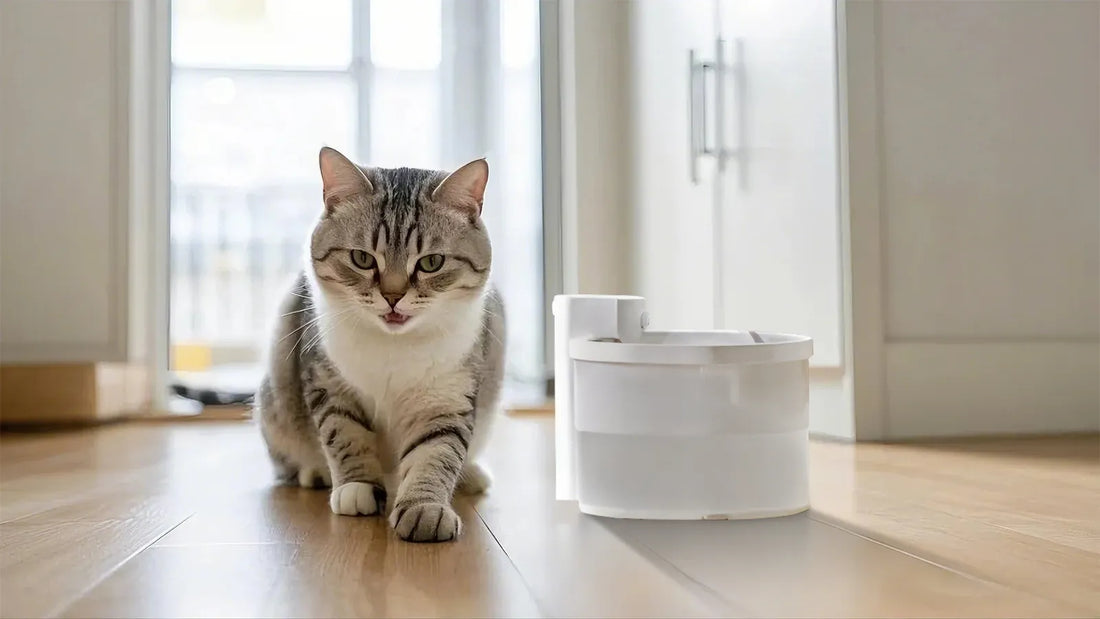If you've ever wondered, 'Why does my cat throw up after drinking water?' you're not alone. This behavior can be concerning for pet owners, but understanding the underlying causes can help you address the issue and ensure your feline friend stays healthy. In this article, we'll explore the possible reasons behind this behavior and provide practical tips to help your cat.
Common Causes of Vomiting After Drinking Water
There are several reasons why your cat might vomit after drinking water. One of the most common causes is drinking too quickly. Cats that gulp down water rapidly may ingest air along with the water, leading to an upset stomach and subsequent vomiting. This is especially common in cats that are dehydrated or have been without water for an extended period.
Another possible cause is the temperature of the water. Cats are sensitive to temperature changes, and drinking water that is too cold or too warm can irritate their stomach lining, causing them to vomit. Ensuring that your cat's water is at a comfortable temperature can help prevent this issue.
Medical Conditions That Can Cause Vomiting
In some cases, vomiting after drinking water may be a sign of an underlying medical condition. Gastrointestinal issues, such as gastritis or inflammatory bowel disease, can cause vomiting in cats. Additionally, kidney disease, diabetes, and hyperthyroidism can also lead to increased thirst and vomiting.
If your cat is vomiting frequently or showing other signs of illness, such as lethargy, weight loss, or changes in appetite, it's important to consult with a veterinarian. They can perform a thorough examination and run diagnostic tests to determine the cause of the vomiting and recommend appropriate treatment.
Dietary Factors and Vomiting
Your cat's diet can also play a role in why they vomit after drinking water. Cats that eat dry food may be more prone to vomiting after drinking water, as the dry food can absorb water in the stomach and expand, leading to discomfort and vomiting. Switching to a wet food diet or adding moisture to your cat's dry food can help alleviate this issue.
Additionally, some cats may have food sensitivities or allergies that can cause gastrointestinal upset and vomiting. If you suspect that your cat's diet is contributing to their vomiting, consider working with your veterinarian to identify and eliminate potential allergens from their diet.
Environmental Factors and Stress
Stress and environmental factors can also contribute to vomiting in cats. Changes in the household, such as moving to a new home, the addition of a new pet, or changes in routine, can cause stress and anxiety in cats, leading to vomiting. Providing a calm and stable environment for your cat can help reduce stress and prevent vomiting.
Additionally, the location of your cat's water bowl can also play a role. Cats prefer to drink from clean, fresh water sources, and if their water bowl is placed near their litter box or in a high-traffic area, they may be less likely to drink from it. Ensuring that your cat's water bowl is placed in a quiet, accessible location can encourage them to drink more comfortably.
Preventing Vomiting After Drinking Water
There are several steps you can take to prevent your cat from vomiting after drinking water. First, ensure that your cat has access to fresh, clean water at all times. Regularly clean your cat's water bowl and replace the water to prevent the buildup of bacteria and contaminants.
Consider using a water fountain designed for cats, as many cats prefer running water and may be more likely to drink from a fountain. Additionally, monitor your cat's water intake and ensure they are not drinking too quickly. If your cat tends to gulp down water, try offering smaller amounts of water more frequently throughout the day.
Finally, if you suspect that your cat's vomiting is related to an underlying medical condition, it's important to seek veterinary care. Your veterinarian can provide a proper diagnosis and recommend treatment options to address the issue and keep your cat healthy.
Understanding why your cat throws up after drinking water is the first step in addressing the issue. By identifying the underlying causes and taking steps to prevent vomiting, you can help ensure your cat stays happy and healthy. If you're concerned about your cat's vomiting, don't hesitate to consult with a veterinarian for guidance and support.













